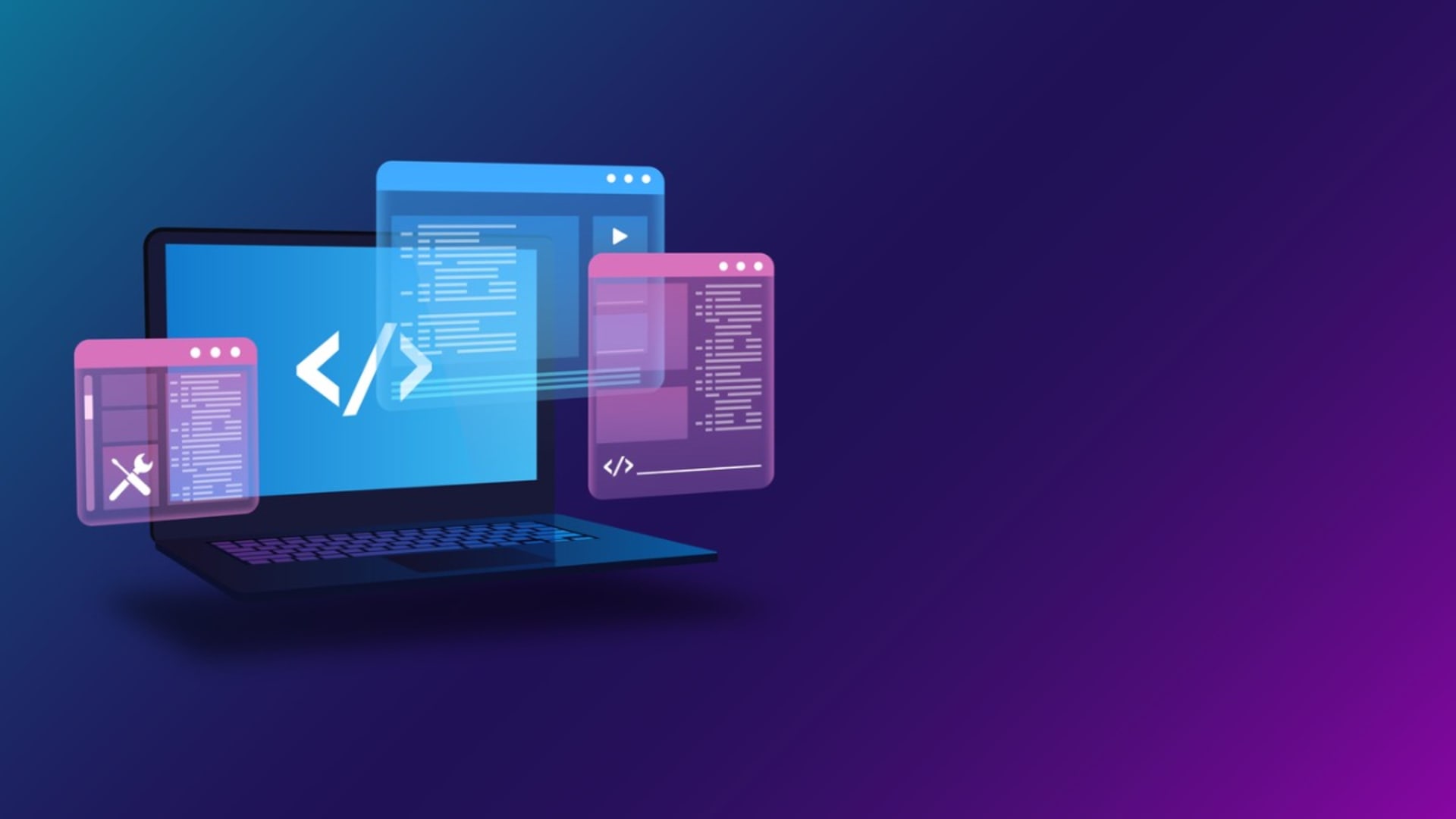- Home
- Technologies
- C#
- Hire C# Developers
Hire C# Developers
Hire vetted C# talent.
Our top 1% of tech talent has already undergone a rigorous vetting process. Get bilingual, nearshore C# developers on your team within 2 weeks.
500+ companies rely on our top 1% tech talent.
No time to find the top talent yourself? Skip the hassle of recruitment.




The Ultimate Guide for Hiring C# Developers
Finding the right software developer with extensive knowledge of C# and the .NET ecosystem isn't easy. While there may be plenty of candidates with software development and technical expertise, you need to consider a range of qualifications, including cultural fit and soft skills.
We know that challenge firsthand. But after recruiting and hiring only the top 1% of tech talent for 15 years, we've found a model that works. Based on our experience, we've put together a guide to help you hone your own hiring process. Here, we discuss important factors and considerations for recruiting C# developers, key skills to look for, sample interview questions, and FAQs about the process. You should be well-equipped to make informed decisions about finding the right fit for your business.
Before You Start Hiring
Project or Team Requirements
What are you looking for in a C# developer? Is there are specific development project you need extra support with, such as game development? Or, perhaps you need a full-scale development team to create software from start to finish. Pinpointing your requirements before you begin your search will ensure a more successful recruitment process—and development process.
Cultural Fit
Technical skills are important for a C# developer, but cultural fit is just as essential. Your developer needs to work well with your existing team, both in terms of your established methodologies/tools and interpersonal dynamics. They should align with the company's culture and support your values.
Timeline and Budget
Timeline and budgetary constraints play an important role in determining the level of expertise you're looking for and the type of hire you need. For example, if you need help with a specific project, you might consider outsourcing development, rather than hiring an in-house developer.
Adaptability
Projects often change. The technology landscape evolves. A C# developer must be adaptable, whether they're transitioning between types of applications (such as web, mobile, or desktop) or learning new frameworks or tools. You should also seek out developers who can cope with myriad challenges.
Niche Experience in the .NET Ecosystem
A C# developer will need to use different tools and technologies within the larger .NET ecosystem. Look for a developer with experience with different frameworks, such as ASP.NET or Xamarin. This helps ensure versatility and the ability to contribute to different types of software and projects.
18 Skills Every C# Developer Should Have
Part of the .NET ecosystem, C# is a high-level and versatile programming language used to create a wide range of applications. Both C# and .NET are constantly evolving, and developers specializing in the area need to have both technical and soft skills to stay up to date.
Here, we've rounded up 18 important skills C# developers should have. Ensuring that you evaluate these competencies will allow you to find the right candidate for your team.
Technical Skills to Look for in Your Ideal C# Developer
1. Proficiency in C# Language
It's important to have a deep understanding of C#'s syntax, data types, operators, control flow, and error handling. The developer should also have a mastery of object-oriented programming concepts (encapsulation, inheritance, and polymorphism).
2. .NET Framework and .NET Core
C# is part of the .NET ecosystem. An understanding of the .NET Framework and .NET Core is crucial since these frameworks provide the foundation on which C# applications are built.
3. ASP.NET MVC
ASP.NET MVC is a web framework that's part of the larger ASP.NET framework. Developers should know the framework for building web applications.
4. Entity Framework
Familiarity with Entity Framework (EF) for Object Relational Mapping (ORM) is important for working with databases and data access.
5. Web Development
There is a growing demand for dynamic and scalable web applications. C# can be used for both server-side logic and client-side development with tools like Blazor. C# developers should have web development knowledge to integrate modern web technologies and frameworks and build robust web apps.
6. LINQ
It's important to be proficient in Language Integrated Query (LINQ) for querying data sources. This enhances the capabilities of data manipulation and querying with C# applications.
7. Database Management
Understanding database management allows C# developers to build secure and efficient applications. They should have knowledge of SQL and experience with databases like SQL Server, MySQL, or PostgreSQL.
8. RESTful Services
WIdely adopted for web API development, RESTful services are important for designing networked applications.
9. Unit Testing and Test-Driven Development
Unit testing is a critical part of the C# development process, ensuring more robust and clean code. Developers should have experience with unit testing frameworks like NUnit or xUnit and familiarity with TDD practices.
10. Version Control
Software developers, including C# developers, should have experience using version control systems like Git. This is important for saving different code versions. It's also helpful for collaborating with team members.
11. Object-Oriented Programming (OOP)
Knowledge of OOP principles like inheritance, polymorphism, encapsulation, and abstraction is important for laying the groundwork for effective language usage. This contributes to better maintenance and design.
12. Design Patterns
C# developers should understand common design patterns and principles like SOLID and DRY to write clean, maintainable code.
13. Software Development Lifecycle (SDLC)
This is important for ensuring a seamless development process. Developers should also have familiarity with methodologies like Agile and Scrum.
14. Security Practices
Any software developer should understand security practices so they can create software that's not only enjoyable to use but also safe. C# developers should be aware of security practices to protect against common vulnerabilities like SQL injection and cross-site scripting (XSS).
Soft Skills to Look for in Your Ideal C# Developer
15. Critical Thinking
Critical thinking allows developers to analyze complex situations and make reasoned decisions. It supports writing clean and maintainable code, helping developers assess various practices and patterns to develop better applications.
16. Communication
C# developers should be able to clearly communicate ideas and technical details to team members and stakeholders alike. They must be capable of receiving and delivering feedback.
17. Adaptability
The software development landscape is constantly evolving. A C# developer must be adaptable and willing to learn new tools and technologies. They must also be able to adapt to changing project requirements.
18. Project Management
While C# developers are mainly responsible for coding and technical problem-solving, having project management skills aids them in leading and contributing to projects more effectively.
19 Questions to Identify Top C# Developers
When interviewing C# developers, it's important to ask questions that first assess the candidates' technical skills and knowledge. Employers will also usually conduct a coding test to further assess specific on-the-job knowledge.
The following set of questions aim to uncover not only the developer's technical knowledge but also their problem-solving abilities, teamwork, communication skills, and adaptability—all crucial traits for success in a collaborative environment.
Here are a few examples of technical interview questions:
1. What is the difference between a struct and a class in C#?
Structs and classes are both data structures that contain data members in C#. However, they behave differently and have different use cases. When deciding between them, consider factors like memory allocation, inheritance, and application design. Structs are more efficient for small and immutable data structures that don't require heap allocation or garbage collection. Classes are reference types store on the heap and provide more flexibility through inheritance. They're better for situations that demand data encapsulation, lifecycle management, and polymorphism.
2. Explain the concept of inheritance.
Inheritance is a concept in OOP that enables a class to inherit properties, methods, and other characteristics from a separate class. This allows for code reuse. It also establishes a hierarchical relationship among classes.
3. What is LINQ and how do you use it in C#?
Language Integrated Query provides a consistent, readable, and concise way to query and manipulate data from different sources. It allows you to query data within the C# syntax. In C#, you use LINQ by using SQL queries or via method syntax that chains extension methods together.
4. Describe what an interface is and how it differs from an abstract class in C#.
An interface defines a contract specifying a set of methods and properties that a class needs to implement without actually providing an implementation for them in C#. They are useful for defining capabilities or types that are sharable across classes.
5. What is garbage collection in .NET?
In .NET, garbage collection is an automatic memory management system that helps handle the allocation and release of memory in apps. The goal is to free up memory that objects no longer in use are occupying.
6. How would you manage state in an ASP.NET application?
Managing state is critical for preserving data across multiple requests in ASP.NET applications. There are several different approaches for doing this, including using Cookies to store smaller amounts of data and ViewState for preserving state in a pae for client-side state management. Session State can be leveraged to store user-specific data across the user's session for server-side state management.
7. What is Entity Framework and how does it work?
EF is an ORM framework for .NET. It allows developers to work with databases by using .NET objects. This eliminates the need for developers to write much of the typical data-access code.
8. Discuss how you would optimize performance for a C# application.
To optimize the performance of a C# application, I use strategies such as ensuring efficient memory management by minimizing allocations to reduce garbage collection pressure. I also leverage parallel processing and asynchronous programming with async/await. I pay attention to data structures and algorithms and choose the most appropriate ones for the situation, among other methods.
9. Please explain the SOLID principles.
The SOLID principles are five principles to follow to make software systems more maintainable, flexible, scalable, sustainable, and understandable. They facilitate easier testing and debugging as well. SOLID principles include:
- Single Responsibility Principle
- Open/Closed Principle
- Liskov Substitution Principle
- Interface Segregation Principle
- Dependency Inversion Principle
10. Describe a challenging problem you solved with C#.
This question evaluates problem-solving skills and adaptability.
11. How do you stay updated with the latest trends in C# and .NET development?
Get a better sense of the developer's willingness to stay up-to-date and commitment to continuous learning.
12. Explain a situation where you optimized a piece of C# code for better performance.
Evaluate the developer's knowledge of performance optimization in C# and ability to review existing code.
13. Describe your experience with unit testing in C#.
This will give you insight into the C# developer's understanding of testing methodologies and ability to maintain code quality.
14. Have you ever implemented design patterns in your projects?
This assesses the candidate's understanding of software design patterns and ability to apply them in appropriate scenarios.
15. Tell me about a time you had to work closely with a team on a project.
Teamwork skills are critical. This is important for understanding how the candidate contributes to a team environment.
16. Describe a situation where you had a disagreement with a team member. How did you handle it?
This question looks at the developer's conflict resolution skills and ability to maintain professionalism.
17. How do you explain complex technical issues to non-technical stakeholders?
The candidate must be able to articulate and explain complex information in an accessible way.
18. Have you ever taken the lead on a project? What was the outcome?
This examines leadership potential and capabilities.
19. Give an example of a time when you proactively improved a process or technology within your team or project.
This assesses the candidate's initiative and ability to positively contribute to a team environment.
FAQ
What qualifications should I look for in a C# developer?
When you're looking to hire C-Sharp developers, consider qualifications such as knowledge of the language and the .NET framework. They should have a strong foundation in various computer science and software topics and experience with RESTful APIs, front-end technologies, database management, and version control systems as well.
How do I assess a C# developer's technical skills during an interview?
You can assess a C# developer's technical skills through technical interview questions, coding tests, and practical assignments. Code challenges and pair programming sessions during the interview will also help you gain insight into their problem-solving skills and coding style.
What soft skills are important for a C# developer?
A C# developer should have soft skills like communication, collaboration, adaptability, critical thinking, time management, an ability to handle feedback, and a commitment to continuous learning.
How do I ensure a C# developer fits well with my team?
To ensure that a C# developer fits in with your team, consider the candidate's communication skills and style, problem-solving approach, and work ethic.
What are some common challenges in hiring C# developers?
Common challenges include finding candidates with the right technical skills and cultural fit. To address this, consider partnering with a reputable C# development company and clearly defining your project requirements in the job description.

- Hire C# Developers
How Businesses Can Overcome the Software Development Shortage
BairesDev Ranked as one of the Fastest-Growing Companies in the US by Inc. 5000










